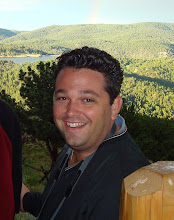
The News
The reality of this differentiation between the Church and culture might be the best gift it has received in 1700 years. Remember that the good news of Jesus Christ is not a theological or philosophical proposition on the justifying nature of God. No, the event of the news of Jesus Christ is that his tomb was empty. On the third day, there was simply no dead body. We can assume that most in Jerusalem and the surrounding areas knew of Jesus of Nazareth’s crucifixion. Had there been a “Jerusalem Times” in those days it would have certainly made the front page. The saving message has never been that Jesus died on a cross. Not only did people know that Jesus was crucified, the Roman use of crosses was simply common in Jesus’ day and was not in and of itself cause for special notice. The event of Jesus’ crucifixion in and of itself would not have been enough to distinguish Jesus, even with Messianic claims. Remember, however, that Messiahs are not supposed to be crucified. The Jewish Messiah was supposed to come and conquer.
The news that spread by word of mouth was that the tomb was empty. Acts 2:23-24 reads, “…this man, handed over to you according to the definite plan and foreknowledge of God, you crucified and killed by the hands of those outside the law. But God raised him up, having freed him from death, because it was impossible for him to be held in its power.”[1]
A God who can raise the dead is a God to contend with. This is a God who holds the future in her very hands. The witness and power of this proclamation in the real world is that it deconstructs so many of the fears and challenges our world throws our way. It is important to say that this witness is not triumphalistic. It takes very seriously the pain, suffering, sorrow, and real death in the world. But more importantly it names where it is that we can find God in the midst of these things. When the bullets fly in an Omaha mall, God takes the bullets. When the bombs explode in Palestine, it is God who is killed. When the space shuttle burns up upon re-entry, we as Christians know that Jesus was there, on that shuttle, with those astronauts.
God shows up in the crosses of life. But this is only half of the gospel. As Peter put it so eloquently in Acts 2:24, “But God…” God’s “but” changes everything. It changes the coercive posture of power of the world powers that use the threat of death and powerful weaponry as fear induced motivators. It moves us from postures of self-protection, self-preservation, and stinginess to postures of service and sacrifice and generosity. It motivates us through its very message to serve the God who has the last word rather than the powers and forces of this world whose word can only ever be penultimate. I believe that it is in this witness that a life-bleeding world is deconstructed, and the life-giving reign of the Messiah is discerned. In the context of the church this witness gives us a new/ancient identity and calling. In this new identity and calling the role of the pastor in Christian community is recast and reshaped into something entirely new, and this new thing has entirely nothing to do with being a dispenser of religious goods and service.
[1] New Revised Standard Version Bible (Nashville: World Publishing, 1989).

No comments:
Post a Comment